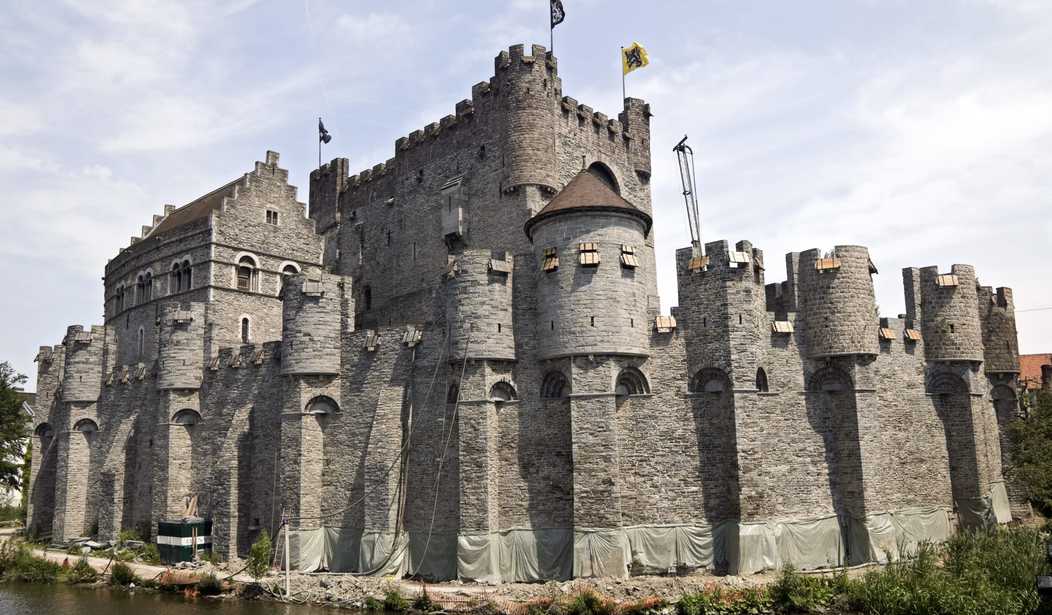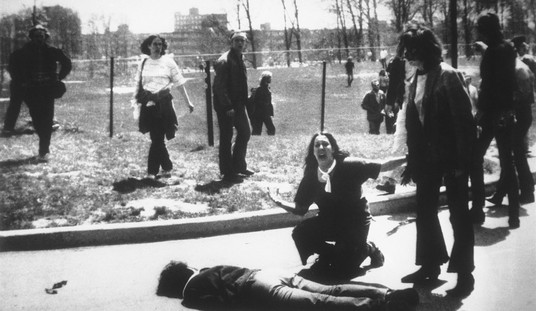Ross Douthat has a thoughtful and well-written article titled What the Right’s Intellectuals Did Wrong. In it he tries to explain why conservative intellectuals lost control of American populism and consequently why Donald Trump rose. The first problem, he argues, was that conservative intellectuals had no institutional base within “the ‘managerial class’ — the largely liberal meritocrats who staff our legal establishment, our bureaucracy, our culture industries, our universities.”
To make up for this weakness conservatives had to fraternize with the great unwashed without being of it themselves. “Whether as provincial critics of this class or dissidents within it, conservative intellectuals have long depended on populism to win the power that the managerial elite’s liberal tilt would otherwise deny them.” In this why they could impute a force behind them. Otherwise they would have nothing to counterbalance the enormous institutional power of their liberal rivals.
Yet despite this pretense to leadership when the crisis came “the populists have seemingly decided that they can get along just fine without any elite direction whatsoever”. The Republican and conservative intellectuals were unceremoniously dumped. Their cherished and painstakingly constructed conservative programs were thrust by the wayside. It was as if they were lion tamers who when their act came, found their beast bounding directly into the bush.
This is, Douthat reasons further, because conservatives showed no marked superiority in competence over liberals, except that they promised less and delivered less. That was not enough of a basis on which to lead. Their programs, so often carried out half-heartedly in the past, smacked more of pious intention than actual intent. “The first failure was a failure of governance and wisdom, under George W. Bush and in the years that followed,” Douthat wrote.
From this weak position conservative pundits “deceived themselves about (or made excuses for) the toxic tendencies of populism”. They saw it other than it was. These failures meant conservative intellectuals were unable to sell the populist demands within the system. They were embarassed by the peasants who left them in a lurch in any case to face the wrath — and scorn — of the liberals.
Both of these errors were linked to the most important failure of the right’s intellectuals: The failure to translate the power accrued through their alliance with populists into a revolution within the managerial class — one that would have ultimately made conservatism less dependent on the vagaries and venom of populism, made the right-leaning intelligentsia less of a wobbly peak and more of a sturdy spire.
Surveying the wreckage Douthat thinks the breach between populism and the men who would lead it nearly complete. “So it is that today, three generations after Buckley and Burnham, the academy and the mass media are arguably more hostile to conservative ideas than ever, and the courts and the bureaucracy are trending in a similar direction.”
There is much in Douthat’s argument but there are a few things lacking. One thing he neglected to mention is intellectual conservatives failed to take their own ideas seriously. While they quoted Bill Buckley’s famous aphorism “I should sooner live in a society governed by the first two thousand names in the Boston telephone directory than in a society governed by the two thousand faculty members of Harvard University” they never meant it. Ultimately they aspired to be the conservative interpreters of the revolutionary masses to the court, not of the masses themselves. Although conservatives were sympathetic to the random names in the Boston phone book they still wanted to be faculty members of Harvard University themselves because of their temperament, education and culture.
They may have talked glowingly about the will of the people or the wisdom of crowds. But when it came right down to it they were as frightened as anyone else of plunging into those seething waters in which — let us admit it — it is dangerous to jump.
The fact was there was less difference between the rival factions of the elite than there was between them collectively and the unwashed. The idea that the Republicans and Democrats had become two wings of one ruling party is explained in my pamphlet Storming the Castle. The notion that the cultural elites had created an information store of falsehoods that would eventually poison them is laid out in my The War of the Words. Each of these pamphlets predicted the same thing: there was a growing gap not primarily between conservatives and liberals but between official ideology and reality, between the elite and the non-elite.
Under those cirumstances it was the clash between the inside and the outside — not the one between Republicans and Democrats — which would be primary. The conservative intellectuals may have thought the line would be drawn inside the castle, but it turned to be drawn right along the castle wall. That was the miscalculation, one from which it will be hard to recover.
In closing Douthat searches without conviction for a way back, sensing that something irrevocable has taken place. He despairs of finding a path, however hard he tries. The difficulty arises from the fact that there may be no way back, which his mind recognizes though his heart does not.
But is there an alternative? Continetti’s essay hints at one: to make intellectual conservatism a more elite-focused project, to seek “a conservative tinged Establishment capable of permeating the managerial society and gradually directing it in a prudential, reflective, virtuous manner respectful of both freedom and tradition.”
This path seems considerably more appealing (and more republican) than the dream of a Trump-led Thermidor. But is it any more plausible? To begin anew, at such steep disadvantages, what amounts to missionary work?
Or, as another alternative, conservative elites might simply try to build a more intellectually serious populism out of the Trumpian wreckage and wait for a less toxic backlash against liberal overreach to ride back into power. But can the populist right actually be de-Hannitized, de-Trumpified, rendered 100 percent Breitbart-free? Or would building on populism once again just repeat the process that led conservatism to its present end?
History does not stand still; crises do not last forever. Eventually a path for conservative intellectuals will open.
But for now we find ourselves in a dark wood, with the straight way lost.
Here once again the great danger is not one of a failure of ideas, but of an unwillingness to take those ideas seriously. Is the system in a crisis? We may already know the answer only we can’t face it. It may be as Ronald Reagan once put it in a different context, a time to choose. Are you inside the Castle or storming it? The essential thing that every man must grasp about Trump is the reason it’s him who is leading the escalade is primarily because it’s not someone else.
Follow Wretchard on Twitter
Support the Belmont Club by purchasing from Amazon through the links below.
Recently purchased by readers:
Red Blood, Black Sand: Fighting Alongside John Basilone from Boot Camp to Iwo Jima, by Chuck Tatum. This is the story of Tatum’s two weeks in hell, where he would watch his hero, Basilone, fall, where the enemy stalked the night and snipers haunted the day, and where he saw his friends whittled away in an eardrum-shattering, earth-shaking, meat grinder of a battle.
The Machinery of Freedom: Guide to a Radical Capitalism, by David Friedman. This book argues for a society organized by voluntary cooperation under institutions of private property and exchange with little, ultimately no, government. It describes how the most fundamental functions of government might be replaced by private institutions, with services such as protecting individual rights and settling disputes provided by private firms in a competitive market. It goes on to use the tools of economic analysis to attempt to show how such institutions could be expected to work, what sort of legal rules they would generate, and under what circumstances they would or would not be stable.
Pax Romana: War, Peace and Conquest in the Roman World, Author Adrian Goldsworthy examines the Pax Romana, the famous peace and prosperity brought by the Roman Empire at its height in the first and second centuries AD. How did the Romans come to control so much of the world not through coexistence but through dominance? Were the traditionally favorable images of the Roman peace true? Why and how did the rebellions of the conquered fail until they became exceedingly rare?
Tigers in the Mud: The Combat Career of German Panzer Commander Otto Carius, by Otto Carius. Translated by Robert J. Edwards. WWII began with a metallic roar as the German Blitzkrieg raced across Europe, spearheaded by the most dreaded weapon of the 20th century: the Panzer. No German tank better represents that thundering power than the infamous Tiger, and Otto Carius was one of the most successful commanders to ever take a Tiger into battle, destroying well over 150 enemy tanks during his incredible career.
Recommended:
Anatomy of the State, Author Murray Rothbard was known as the state’s greatest living enemy, and this book is his most succinct and powerful statement on the topic. He explains what a state is and what it is not. He shows how it is an institution that violates all that we hold as honest and moral, and how it operates under a false cover. He shows how the state wrecks freedom, destroys civilization, and threatens all lives and property and social well being, all under the veneer of “good intentions.”
Did you know that you can purchase some of these books and pamphlets by Richard Fernandez and share them with your friends? They will receive a link in their email and it will automatically give them access to a Kindle reader on their smartphone, computer or even as a web-readable document.
The War of the Words, Understanding the crisis of the early 21st century in terms of information corruption in the financial, security and political spheres
Rebranding Christianity, or why the truth shall make you free
The Three Conjectures, reflections on terrorism and the nuclear age
Storming the Castle, why government should get small
No Way In at Amazon Kindle. Fiction. A flight into peril, flashbacks to underground action.
Storm Over the South China Sea, how China is restarting history in the Pacific
Tip Jar or Subscribe or Unsubscribe to the Belmont Club










Join the conversation as a VIP Member